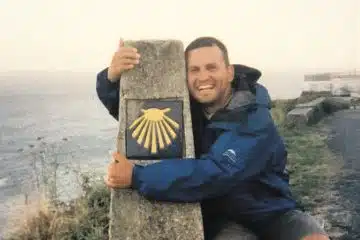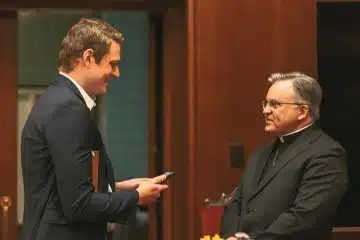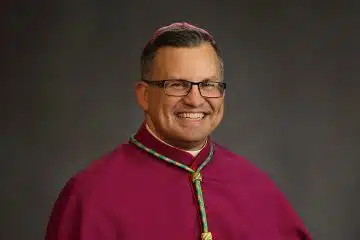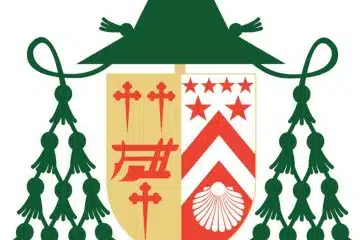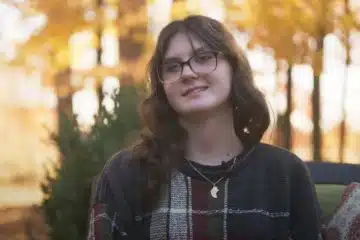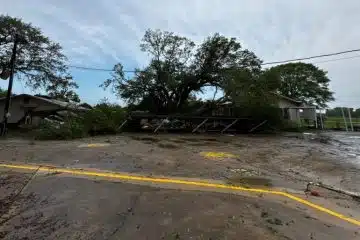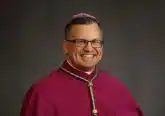Panel of lawyers discusses immigration issues
April 21, 2011
By David Eck
CATHEDRAL DEANERY — For 18 months, Jorge Martinez was what some would consider a criminal.
The Colombian-born lawyer came to Cincinnati from Bogota in 2001 with his wife and their three children on a work visa. He immediately applied for permanent residency, received initial approval and didn’t renew his visa because the process was going smoothly. His application was denied, however, and while waiting on an appeal, he was undocumented. The petition was eventually approved.
Martinez, who now practices immigration law in Ohio, recently told his story in order to call attention to the fact that undocumented immigrants aren’t just the criminals depicted on television news and in political speeches. He was part of a panel of three lawyers who discussed immigration issues April 13 at a monthly meeting of the Metropolitan Area Religious Coalition of Cincinnati, held at the Cathedral of St. Peter in Chains.
“It’s too easy to generalize,” Martinez said. “We’re not saying that all the immigrants are angels or saints, but the media have been pointing out only the bad people and trying to make us all look bad.”
While he encouraged undocumented immigrants to pursue legal status, he admitted the process can be nearly impossible.
Marilyn Zayas-Davis, an immigration lawyer, explained that under federal legislation enacted in 1997, undocumented immigrants cannot petition for legal status unless they first leave the country. However, if they have been here for a year or more, they are barred from reentering the United States for 10 years. If a person is here for six months to one year, there is a three-year reentry ban.
Zayas-Davis said she has followed the lack of information readily available in the media that would help people understand the process of legal immigration and then encourage the changes that might be called for in the system.
What’s needed is comprehensive immigration reform, Martinez said, that would enable undocumented immigrants to become citizens so they could work and establish businesses to help build the country’s economy.
The current system of deporting undocumented immigrants leads in many cases to abandoned houses which end up in foreclosure. Many undocumented immigrants own homes, he noted.
“If we do the right thing and allow people [to remain here] without being [considered] criminals and who are willing to keep paying their taxes and follow our rules, we will be better off,” Martinez said. “If we don’t fix the status of these people, we risk losing opportunities to invigorate our economy and make it right for those families.”
Tony Stieritz, director of the archdiocesan Catholic Social Action Office, expressed concern that in the absence of immigration reform U.S. Immigration and Customs Enforcement (ICE) officials are approaching immigrants even as they come out of local courts to pay fines for minor offenses.
Adolfo Olivas, a senior attorney with the Legal Aid Society and former mayor of Hamilton, explained that ICE officials maintain they are only going after people with deportation orders and serious criminals.
“That doesn’t seem to be what’s happening,” he said. “What I think is happening is we are picking the lowest fruit from the tree. It’s very easy to find people when they come in for a traffic violation…but I don’t think that in most municipal courts you’re going to find serious felons, murders, rapists. They tend not to hang around those places.”
In dealing with racial profiling and overzealous enforcement, Zayas-Davis encouraged advocates to present a unified front at the grassroots level. It’s a challenge to address the issues through a lawsuit, because they are difficult to fund and there often are no complainants, she noted.
“The best way to address most of these things is through community action,” Zayas-Davis said. “The community action is going to be far more effective in the long run than a lawsuit.”
Loretta O’Donnell, a parishioner at St. Anthony Parish in Madisonville and a member of the archdiocesan Catholic Immigration Task Force, said the discussion gave her additional insight on the need for comprehensive immigration reform.
“The bottom line is that people are coming illegally because there are few legal paths to immigration,” she said. “I think that religious leaders and [the] Catholic Church are leaders in finding ways for our immigrant brothers and sisters to come to the United States to create economic opportunities for their families.”


